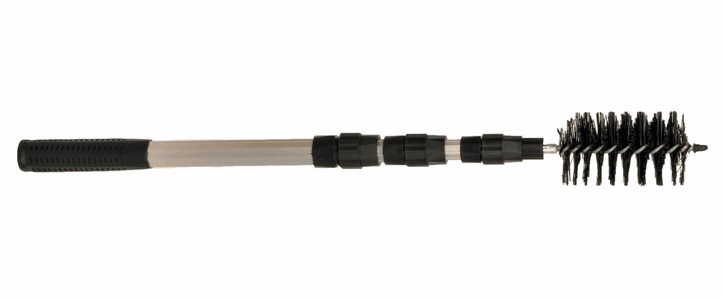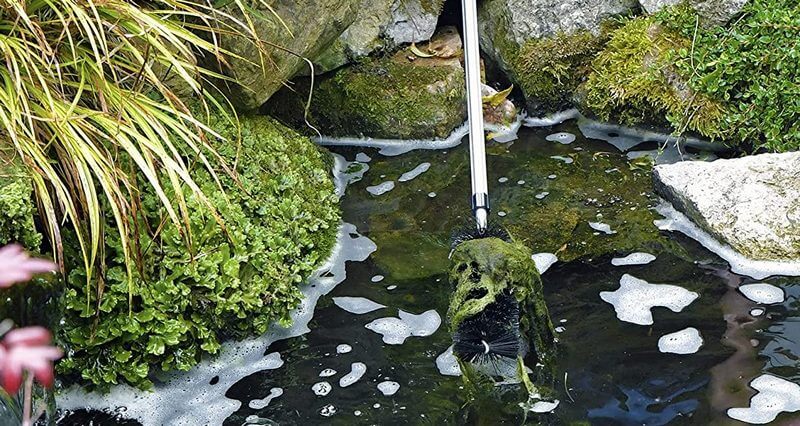One of the most common questions we get asked here at the garden center is “how can I get rid of blanket weed naturally?” While there are a number of chemical treatments available, many people are looking for more natural solutions. Fortunately, there are a few things you can do to help control blanket weed without resorting to harsh chemicals.
1. Make sure your pond has a sufficiently powerful pump and filter system
One of the best ways to prevent blanket weed from taking hold in your pond’s water is to make sure you have a good pump and filter system in place. The pump should be powerful enough to keep the water moving around the pond, and the filter should be able to remove organic matter such as dead leaves, algae, and dirt.
2. You should clean the filter regularly
Particles of dirt can provoke the growth of blanket weed, so it’s a good idea to clean your filter regularly. This will help remove any debris that could be providing nutrients for the weed and ensure that your pond remains clear and healthy.
3. Get rid of excessive numbers of fish
Having too many fish in your pond can also cause an overgrowth of blanket weed. This is because the fish produce a lot of waste, which provides nutrients for the weed. To help prevent blanketweed growth, consider reducing the number of fish in your pond by either trading or giving away some of them to other ponds.
4. Get rid of uneaten fish food
If you have too much fish food being fed to the fish, this can cause an overgrowth of blanket weed. Uneaten fish food will decompose in your pond and provide nutrients for the weed to feed off. To prevent this, make sure all uneaten fish food is removed from the pond as soon as possible.
5. Get rid of rotting plants and fallen leaves
Rotting plants and fallen leaves can also provide nutrients for blanket weed in your pond. Make sure to remove any such debris from the water as soon as you spot it, as this will help prevent the weed from taking hold.
6. Ensure that fertiliser and debris do not wash off the ground during the rains
If there is a lot of fertiliser and debris on the ground around your pond, this can be washed into the water during periods of heavy rain. This will provide nutrients for blanket weed to feed off, so you should make sure that your soil is clear of any such materials.
7. Remove blanket weed physically
Use a simple stick or a special blanket weed brush to remove any visible blanket weed from the surface of your pond. This will help to stop the weed from spreading and reduce its growth rate.
Hozelock Blanketweed Algae Brush

8. Change the water but not all of it
In order to prevent the loss of beneficial bacteria in a complete water change, it is best to change 1/10 of the pond’s water volume no more than once a week. This helps keep the water clean and reduces the chance of blanket weed taking hold.
9. Install skimmers to remove surface debries
Skimmers are a great way to remove debris from the surface of your pond, which can provide nutrients for the blanket weed to feed off. Installing one will help make sure that your water stays clean and clear.
10. Get aquatic plants
They will compete with the blanketweed for nutrients and help prevent it from taking hold. Make sure to choose plants that are native to your area and well-suited for your pond’s environment.
11. Get plants that provide shade
Such plants as pond lilies create the lack of sunlight that is critical for blanket weed growth.
12. Use a phosphate remover
If all else fails, you can use a phosphate remover to reduce the levels of phosphates in your pond. This will help prevent blanketweed from taking hold by reducing its access to nutrients.
Preventing
All of the above can be used BEFORE the blanket weed appears!
If you are tired of it all
Blanket weed can be a stubborn and frustrating problem to get rid of, but there are treatments available. If you’re battling this pesky weed in your pond, we recommend using one of the special blanket weed treatments specifically designed to target it. With a little bit of effort, you can finally say goodbye to those unsightly patches and enjoy your well-maintenced pond once again.

